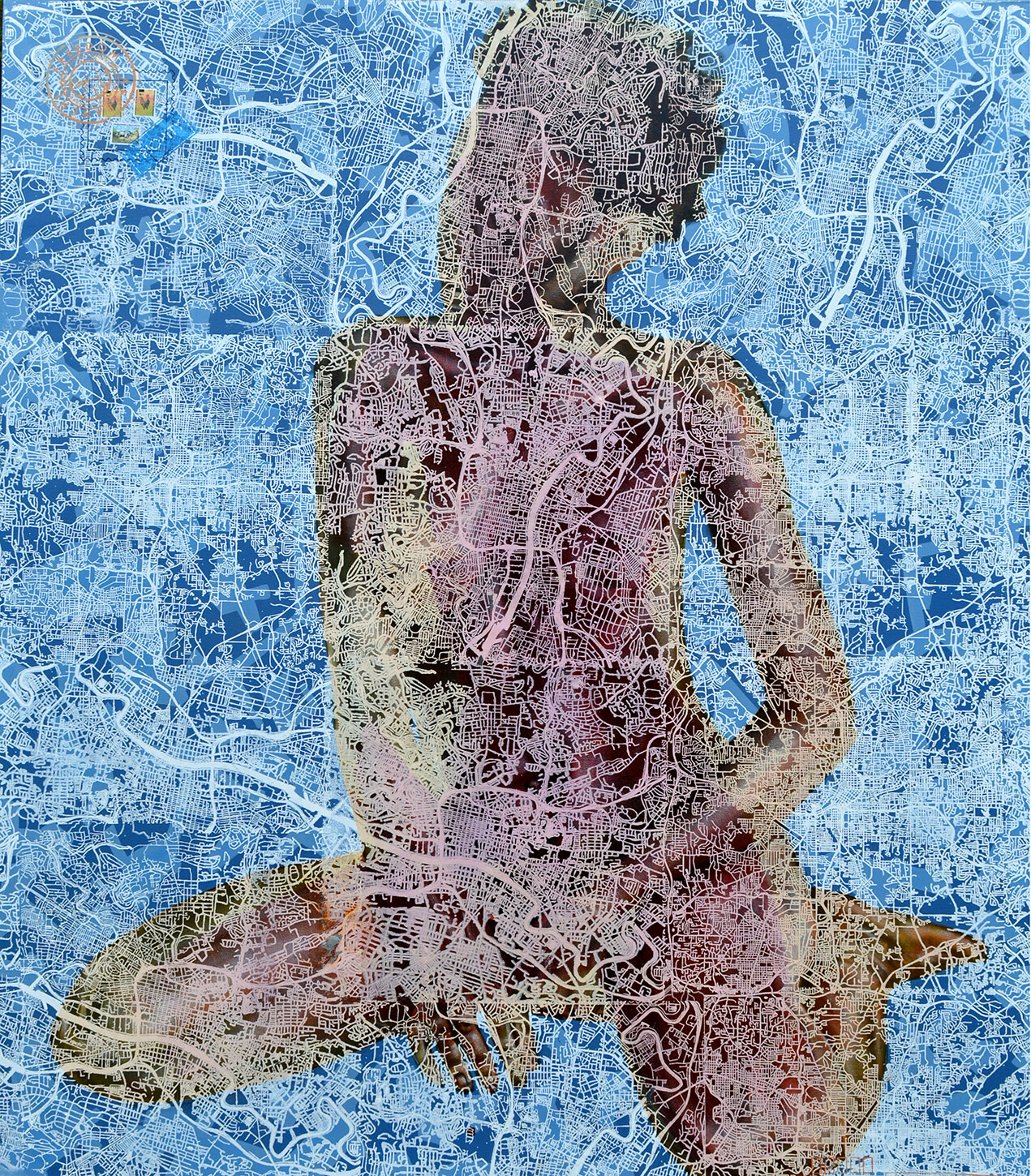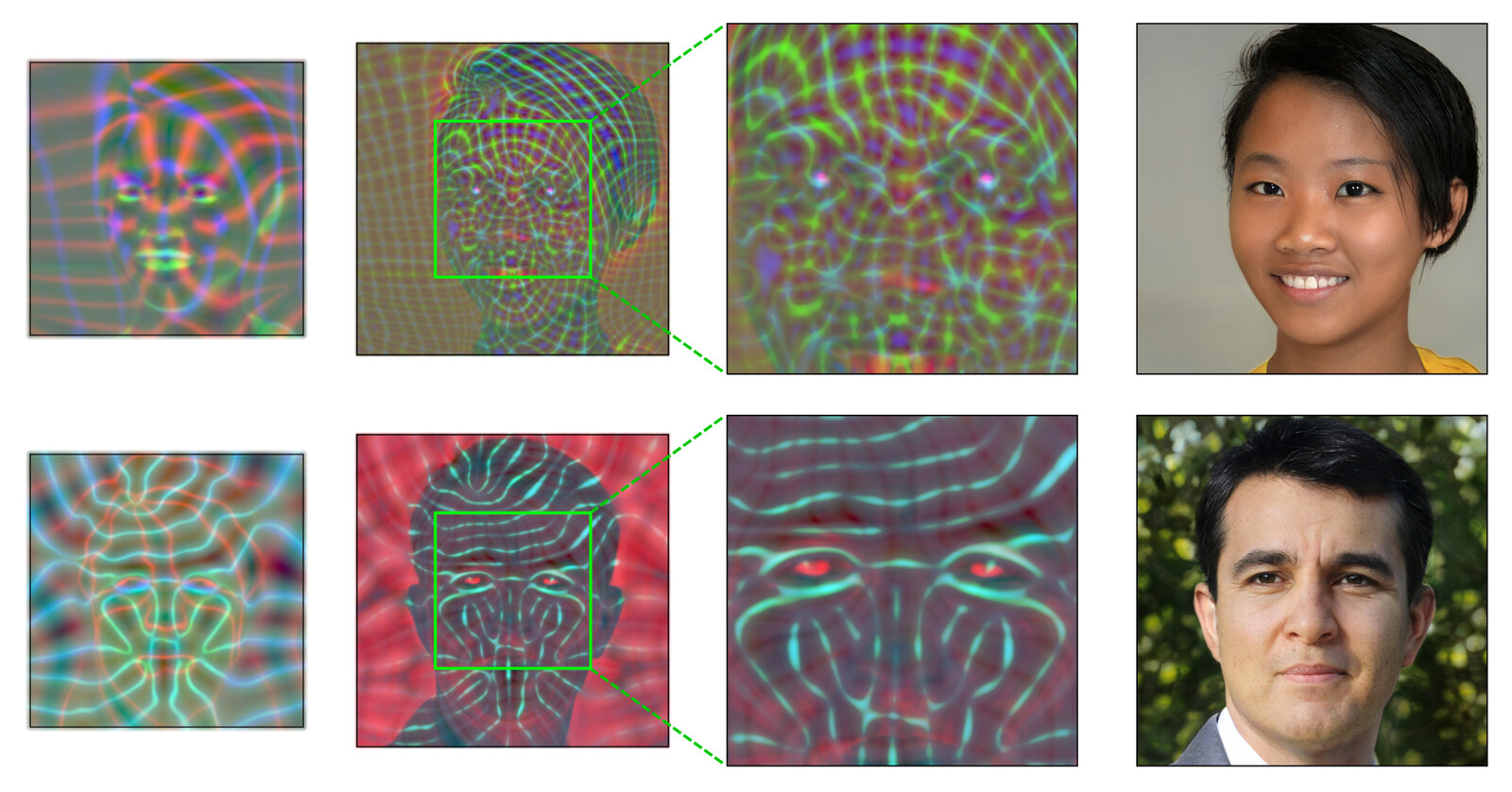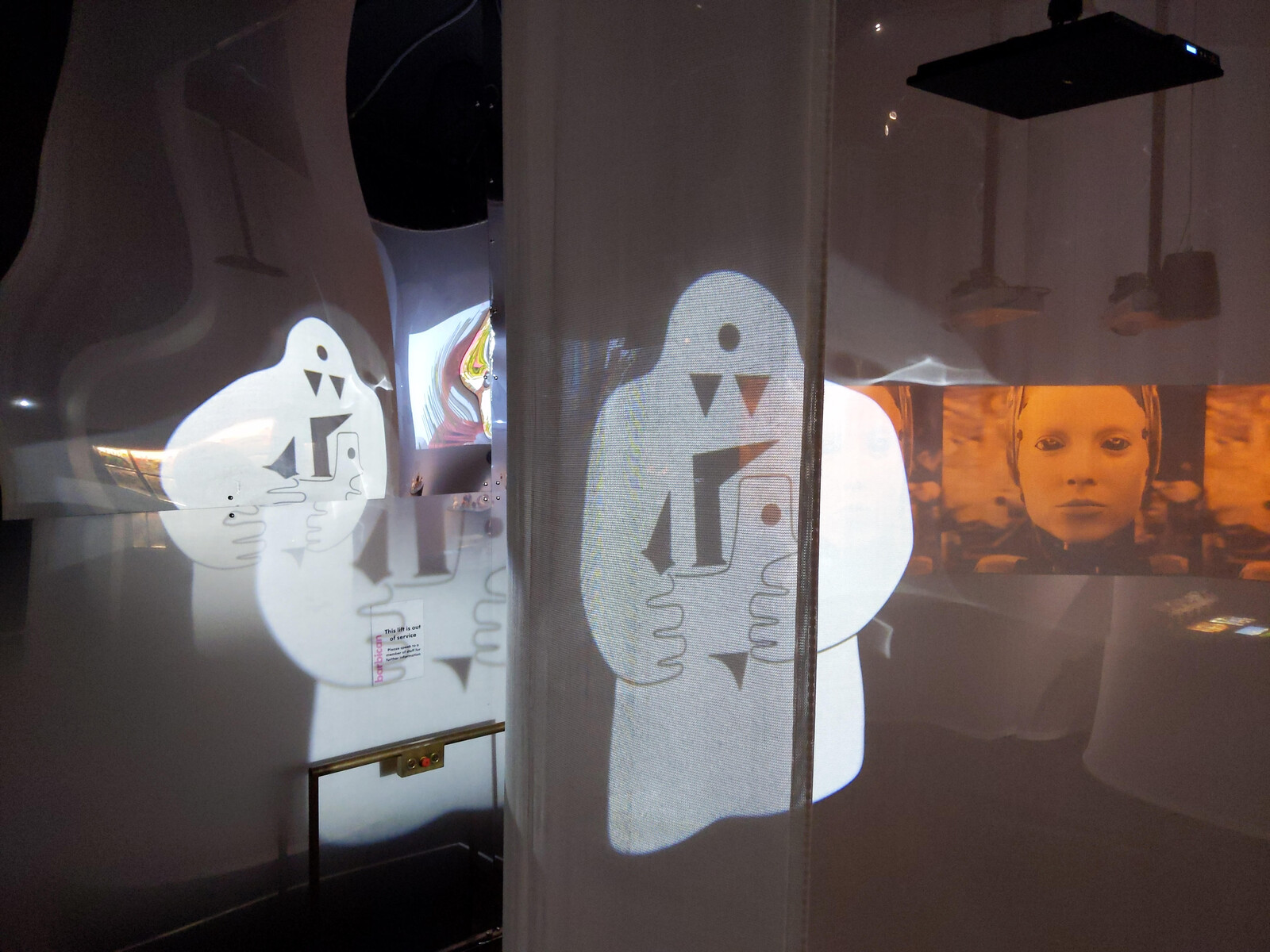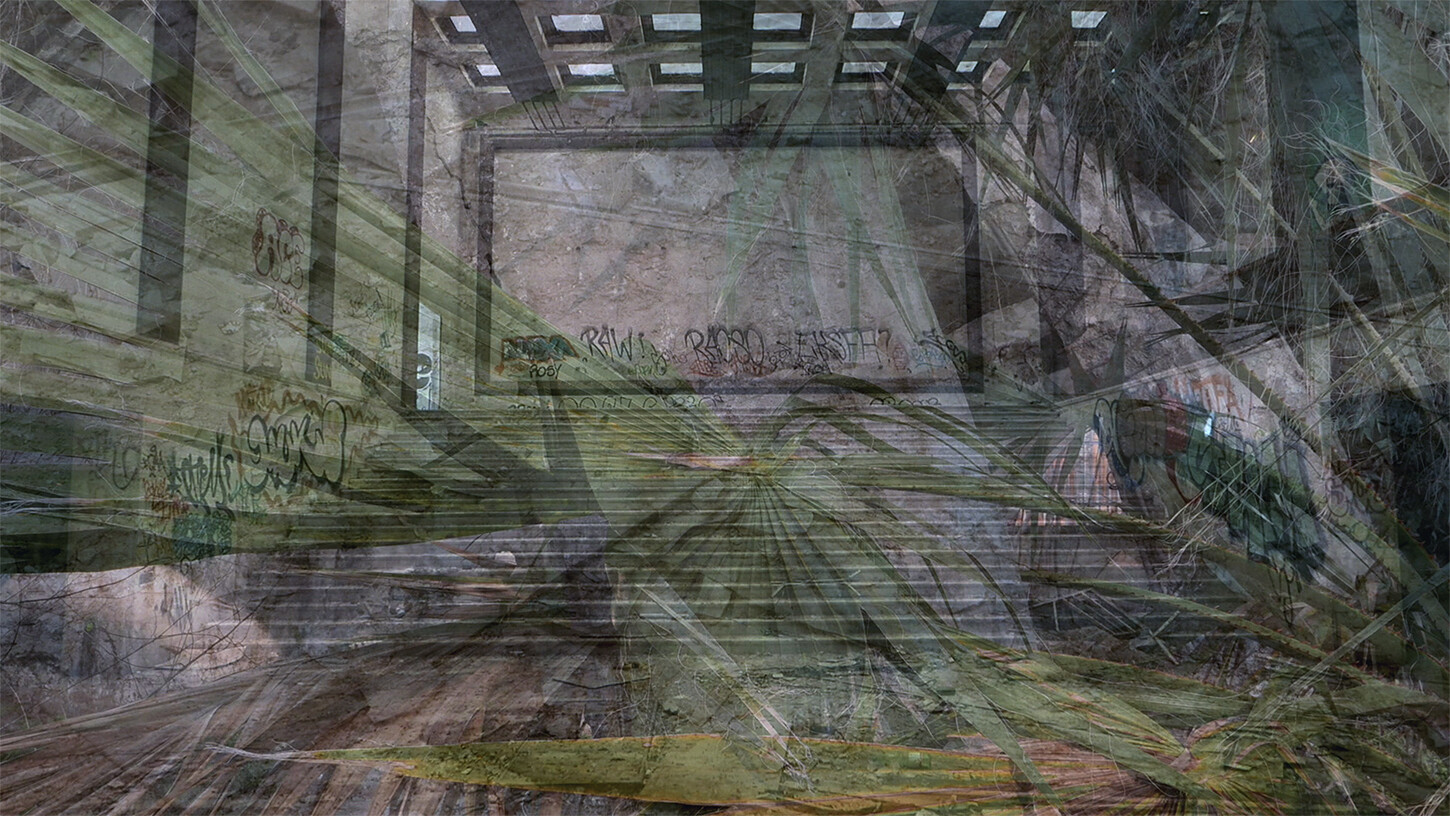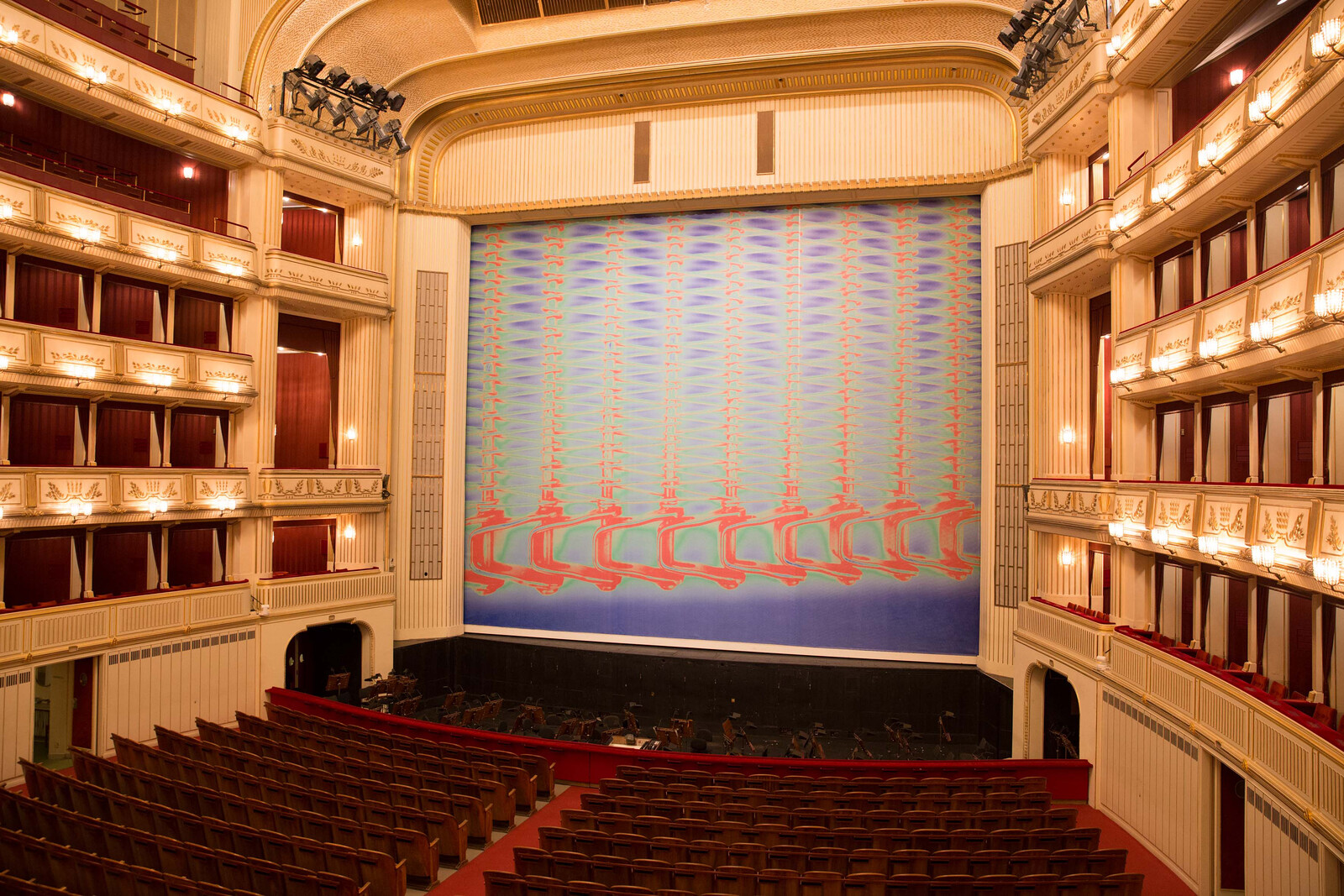When playing in the context delineated by the thesis introduced by recursive colonialism, black feminist poethical tools and procedures seem to support what the latter both diagnoses and proposes, which is the uprooting of the infrastructure of global capital. It is again a moment that includes (a) a strike from above, which is creative rather than destructive, and which unleashes (b) a downward blow—an implosion perhaps—that shifts attention to the foundations. It is as if looking at global capital from down to up reveals precisely that which is not visible from its windows because it is what sustains the walls onto which they have been carved.
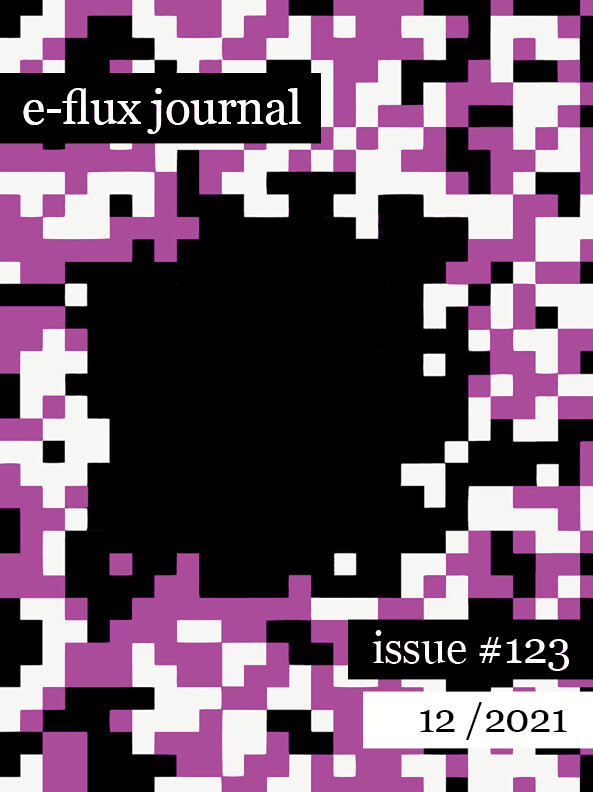
Alessandro D’Aquino, for “Recursive Colonialism, Artificial Intelligence and Speculative Computation” symposium, 2020.
Issue 123 of e-flux journal is guest-edited by the Critical Computation Bureau (CCB), a collective of researchers and writers working between technology and culture, computer science and information theory, aesthetics and politics. The members—Luciana Parisi, Ezekiel Dixon-Román, Tiziana Terranova, Oana Pârvan, and Brian D’Aquino—are situated in the US, the UK, and Southern Italy, and engage with networks spanning several continents to intervene in the techno-politics of racial capitalism and its recursive regeneration.
Today, how should we consider that this colonial appeal to reason has left a parting gift, namely the frantic double exposure of the racial image? On the one hand, the current human-to-human relation is still largely saturated by images of a world constructed through epistemic whiteness. On the other hand, the technological object, in its ignorance, has been largely programmed to overwrite the complex dynamics of historical race relations, and has instead been designed to infer logical conclusions from a racist human history, as if this data is anything other than an ensemble of racial processes dragged through time on the instruction of the white imaginary. If a harmony is to be achieved, then the structures of these processes, as well as the resultant double images, must be brought into an authentic awareness.
The golem myth becomes a sonic fiction, a retroactive engineering of dispossessed data rhythms that expose the systematic canceling-out of origin. As feedback circuits, logic gates, and automated hypothesis merge with Afro-diasporic flesh, codes become sensual matter that enter black musical sociality and proliferate underneath and across the global infrastructures of the master/slave modeling of command and control. The “futurhythmachine” tells us of the irreversible complicity of automation and dispossession reconfiguring the techno-cultural matrix of innovation and subjection in the operating systems of planetary capital. Golemology here offers not a withdrawal from orality, but rather advances through the alien frequencies of worlds otherwise, mingling and infecting the organic integrity of human language.
If we are to think with Mediterranean archives and the challenge their recursivity poses to the conceptualization of the present and possible futures, we cannot avoid registering the formation of the basin as a “colonial lake.” This conception foregrounds that since 1900, and until quite recently, the Mediterranean was directly ruled from London, Paris, and Rome. To consider what escapes this coloniality, and to insist on the incalculable slipping through the nets of a still hegemonic positivism—secured by a faith in the European human and social sciences—is to encounter that we, Occidentals, do not know what we thought we knew.
The techno-social is the form of the social that comes after its end. It is neither a virtual nor a global digital community, but a component of the milieu generated by a new technical being—the digital computational network. It was triggered not so much by social media, as first assumed, but by the turn whereby social computing no longer simply supported social interaction but started “to process the content generated by social interaction,” making its results “usable not just by users but by the digital systems that supported their activities” (Thomas Erickson).
The question then is how the recursive creates the potential for remaking time, for inhabiting temporalities askew. Where is the potential in dividual economies? We do not yet know what kinds of rearrangements of domestic and political spheres can be generated from these scenes of mass debilitation. We come to Spinoza—what can a body do?—through the bio/necropolitical, asking: How do populations live the unlivable? As the becoming-pandemic introduces novel precarities while reinforcing old ones, we will be asking these questions again and again.
Invoking a term from Tiziana Terranova, participatory confinement in refugee humanitarianism can also be considered a form of “soft control.” Asylum seekers are increasingly asked to answer questionnaires and provide detailed information to humanitarian actors about their coping strategies, migratory journeys, the logistics of border crossing, and their protection needs. These activities are presented to refugees as an opportunity to improve their individual situation and, at the same time, the asylum system at large; in actuality, they just increase the control that the system has over refugees.
In line with its showboating tendencies, the AI claims that its secrets are the very secrets of the universe, and that these secrets are still hidden. In other words, even if the AI has “seen it all, heard it all, recorded it all, stored it all, used it all, analyzed it all,” it still cannot understand any of it. Thus, what is revealed is the rather mundane secret that interpretation is required. But how should one interpret the fact that the AI lets the preferred methods of the humanities back into the game?
